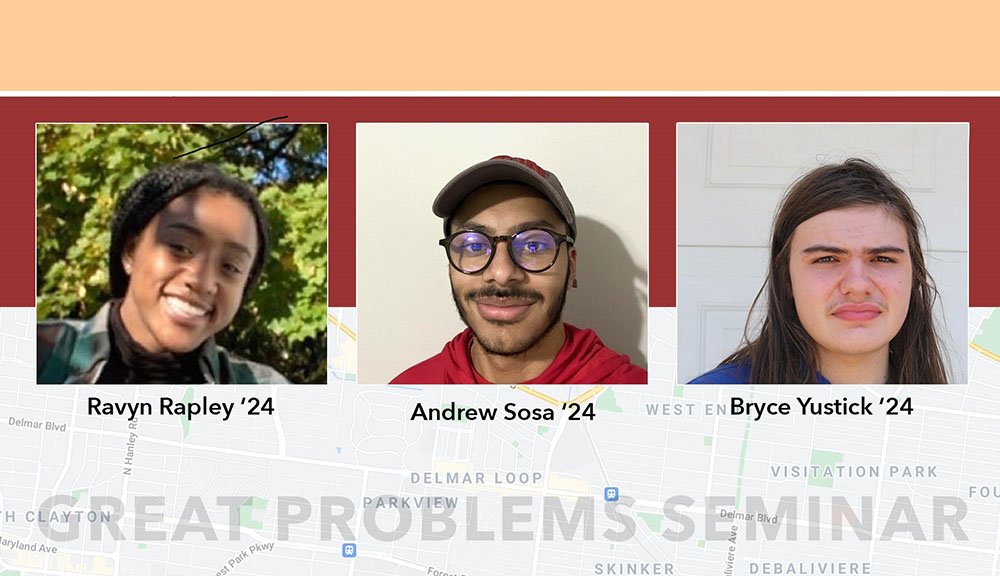Rachel’s Table provides 400,000 pounds of food and milk to 37 soup kitchens, shelters, group homes, and other social service organizations in Central Massachusetts. But with a growing demand for food donations, the hunger relief organization needed help in maximizing donations from supermarkets, which were considered an underutilized food source.
That assistance arrived in the form of a five-student team from Worcester Polytechnic Institute (WPI), which, through a project in WPI’s Great Problems Seminars, devised a plan by which supermarkets could garner support from consumers for donating food. Participating grocers would display a seal that would be promoted to consumers as a way to support a community-conscious business. In addition, the WPI team designed flyers and sign-up sheets to promote Rachel’s Table directly to supermarket customers, either to give donations of food or money, or to volunteer their time. The plan, which has not been implemented, will be presented to area supermarkets in the near future.
This project is one of more than 50 that was shared with the WPI community and the public during today’s Poster Presentation Day. More than 200 freshmen who enrolled in the Great Problems Seminar participated. Judges are to select winning projects from the posters and talks given by team members.
WPI launched the Great Problems Seminars in 2007 as a new approach to the university’s first year experience. The seminars focus on global problems, for example, in the areas of food, energy, health, and engineering for sustainability. The Great Problems Seminars provide students with important early exposure to WPI’s project-based curriculum and help them develop the skills necessary for success in their future project work.
"The project component of the GPS is intended to make students aware at a very fundamental level of the complexities of our global problems, and simultaneously, that small steps can make great differences," said Kristin Wobbe, associate dean of undergraduate studies. "These students saw a small step for an existing organization that could have a significant difference not only for Rachel’s Table but, more important, for the community they serve.
"Along the way, these students learned how to work in a team on a long-term, significant problem. They improved their ability to give presentations, found and organized information from different resources, became far more aware of their community, and felt a great sense of satisfaction that their efforts have made a real difference."
Carla Szymanski, director of Rachel’s Table, said her organization does not obtain much from area supermarkets beyond baked goods. She said that devising a more comprehensive donation plan requires too much manpower for her organization, which has two employees, assisted by volunteers.
"We had a great experience with the WPI students," she said "They’re fun to work with, they’re bright, and they bring a lot of interesting new insight and ideas. It’s fun to see their minds going in ways that can help us. I take their work very seriously.
"It’s getting harder to get food donations these days. There are so many groups competing to get food, and the number of people needing it in our community has grown terribly over the last few years. Whatever we can get will go somewhere and make an impact."
WPI freshman Kaija Roy, an environmental engineering major, said she signed up for the GPS program because she knew she could work on a real-world problem in her first year.
"Working on this project was absolutely amazing," she said of the work with Rachel’s Table. "I hadn’t worked with the members of this team before, so, at first it was a little rough figuring out what different people’s strengths were. Once we figured it out, we began to really work as a team."
This year, the Great Problems Seminars program has expanded from four to eight seminars, with room for a maximum of 450 students; last year the program enrolled 255 students, with more than 130 on a waiting list.


